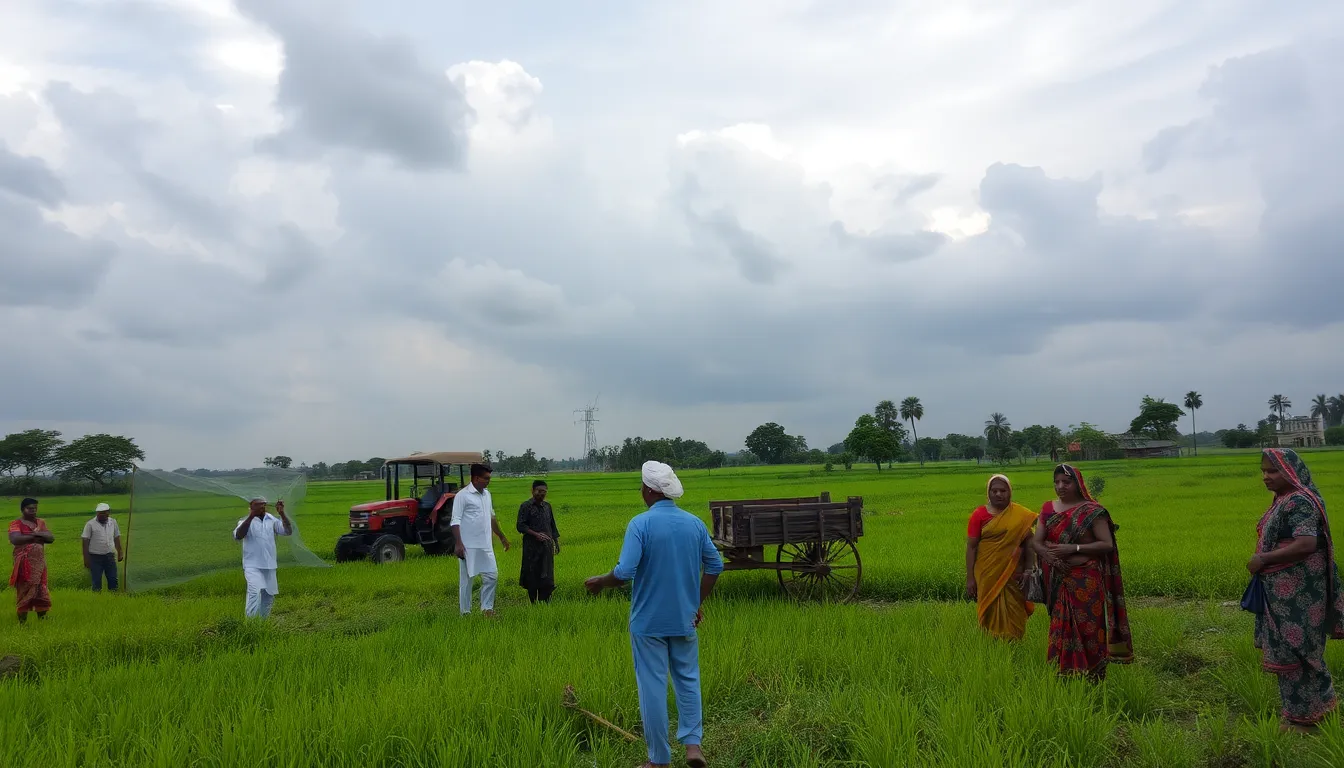Weather patterns are changing across India due to several cyclonic circulations. This week, states like Meghalaya, Bihar, Rajasthan, Odisha, Kerala, and Delhi-NCR will see heavy rains, thunderstorms, and heatwave alerts. The India Meteorological Department (IMD) has forewarned that these weather changes could lead to significant impacts on agriculture and daily life.
In Meghalaya, the forecast predicts heavy rainfall. Farmers should prepare for wet conditions that can affect crop health. It’s essential to check for waterlogging in fields, which can harm crops like rice and vegetables.
Bihar is also expected to experience thunderstorms. The IMD advises farmers to secure their harvests and protect them from strong winds. Using nets and other protective measures can help save crops during this unpredictable weather.
In Rajasthan, a heatwave alert is issued alongside the possibility of rain. This unusual combination can have mixed effects on crops. While rain can be beneficial, excessive heat can lead to crop stress. Farmers are encouraged to monitor their fields closely and adjust irrigation practices as needed.
Odisha’s coastal districts are bracing for the impact of Cyclone Shakti, which is expected to form over the Bay of Bengal. The IMD predicts that Odisha’s coastal areas may experience gusty winds and moderate rainfall. Residents are reminded to stay alert and follow local advisories. Past cyclones in Odisha have caused significant damage, making preparedness crucial.
Kerala is also in the path of these weather changes. The southwest monsoon has arrived early, bringing both relief and challenges. Farmers should take advantage of the early rains to prepare their fields for planting. However, they must also be cautious of soil erosion and flooding in low-lying areas.
In Delhi-NCR, the forecast includes possible thunderstorms. Urban farmers and gardeners should secure their plants to prevent damage. The changing weather can also affect local markets, so vendors should be ready for fluctuations in supply and demand.
Overall, the Indian farming community needs to stay informed about these weather updates. With changing climate patterns, planning and flexibility will be key to managing crops effectively. Farmers are urged to use weather apps and local news to stay updated on forecasts. They should also consider collaborating with local agricultural experts to make informed decisions regarding crop management during this period of uncertainty.
As these weather events unfold, the focus should be on minimizing risks and maximizing the benefits of rainfall. Farmers should remember that while weather can be unpredictable, good management practices can help mitigate challenges.

